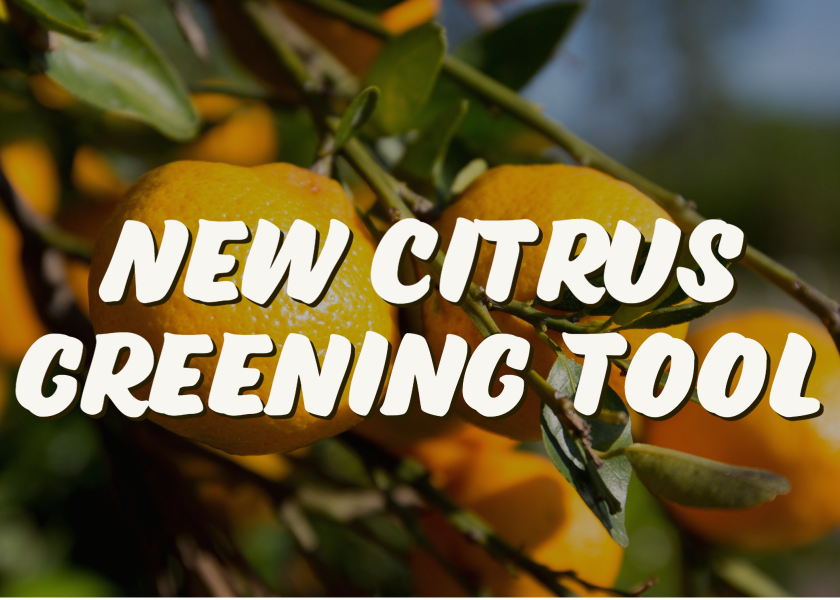Florida researchers discover new way to potentially control citrus greening

Researchers at the University of Florida say they discovered another key resource in their ongoing pursuit to find solutions to fight Huanglongbing (HLB), or citrus greening disease.
The discovery, according to a news release, brings the potential of another tool for citrus growers to control the insect that transmits the disease-causing bacterium and protects infected trees from more deadly damage.
The release said Kirsten Pelz-Stelinski, an associate professor of entomology and nematology at the UF Institute of Food and Agricultural Sciences Citrus Research and Education Center, discovered that 2’-deoxy-2’-flouro-d-arabinonucleic acid antisense oligonucleotides (FANA ASO) (small-sized single-stranded nucleic acids) can be used to silence essential genes within Asian citrus psyllids and in the bacterial pathogen that causes citrus greening disease.
In their study, Pelz-Stelinski and her team were able to reduce the citrus greening disease pathogen in the psyllid and in citrus, leading to less transmission and a potential reduction in disease severity.
“The intent of this research was to find alternative, environmentally-friendly tools for psyllid management as current pest management strategies have led to the development of resistance among Asian citrus psyllid populations,” Pelz-Stelinski said in the release.
“Understanding the relationships of essential bacteria needed for insect survival provides potentially important targets for control strategies that use bactericides. By disrupting how the psyllid acquires and processes the pathogen while impacting the nutrition and fitness of the psyllid may provide an alternative management tool in controlling transmission of the HLB pathogen.”
Researchers also looked at treating the roots of greening-infected citrus trees with specific types of FANA ASO. They found significant reductions of the citrus greening causing bacteria in the tree during a 30-day trial, the release said.
The researchers conducted their experiments in a lab setting and with citrus materials in a controlled environment. The next step would be to assess how the FANA ASO would perform in a field trial.
The research was made possible with support from AUM Biotech, which designed and synthesized the FANO ASO, in addition to funding from the U.S. Department of Agriculture National Institute of Food and Agriculture Emergency Citrus Disease Research and Extension program. The research was recently published in the online Nature Scientific Reports.







